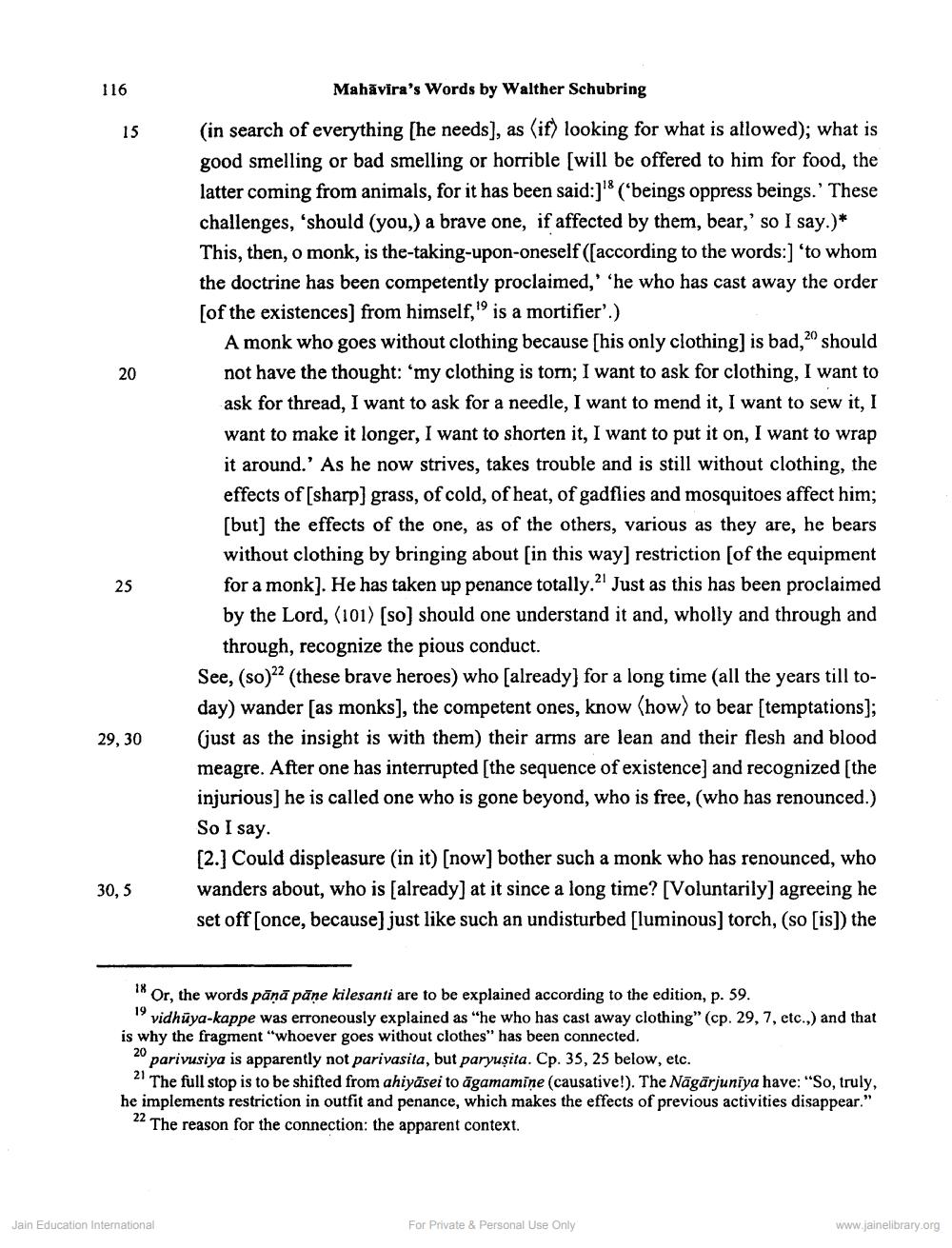________________
116
15
Mahāvira's Words by Walther Schubring (in search of everything [he needs), as (if) looking for what is allowed); what is good smelling or bad smelling or horrible (will be offered to him for food, the latter coming from animals, for it has been said:)'$ ('beings oppress beings.' These challenges, 'should (you,) a brave one, if affected by them, bear,' so I say.)* This, then, o monk, is the-taking-upon-oneself ([according to the words:) 'to whom the doctrine has been competently proclaimed,''he who has cast away the order [of the existences) from himself,' is a mortifier'.)
A monk who goes without clothing because [his only clothing) is bad,29 should not have the thought: ‘my clothing is tor; I want to ask for clothing, I want to ask for thread, I want to ask for a needle, I want to mend it, I want to sew it, I want to make it longer, I want to shorten it, I want to put it on, I want to wrap it around.' As he now strives, takes trouble and is still without clothing, the effects of [sharp) grass, of cold, of heat, of gadflies and mosquitoes affect him; [but] the effects of the one, as of the others, various as they are, he bears without clothing by bringing about [in this way) restriction (of the equipment for a monk]. He has taken up penance totally.21 Just as this has been proclaimed by the Lord, (101) (SO) should one understand it and, wholly and through and
through, recognize the pious conduct. See, (so)22 (these brave heroes) who [already) for a long time (all the years till today) wander (as monks], the competent ones, know how to bear (temptations); (just as the insight is with them) their arms are lean and their flesh and blood meagre. After one has interrupted (the sequence of existence] and recognized the injurious] he is called one who is gone beyond, who is free, (who has renounced.) So I say. [2.] Could displeasure (in it) (now) bother such a monk who has renounced, who wanders about, who is (already) at it since a long time? [Voluntarily] agreeing he set off [once, because) just like such an undisturbed (luminous) torch, (so [is]) the
29, 30
30,5
1 Or, the words pānā pāne kilesanti are to be explained according to the edition, p. 59. 19 vidhūya-kappe was erroneously explained as "he who has cast away clothing" (cp. 29, 7, etc.,) and that is why the fragment "whoever goes without clothes" has been connected.
parivusiya is apparently not parivasita, but paryușita. Cp. 35, 25 below, etc. 2 The full stop is to be shifted from ahiyāsei to āgamamine (causative!). The Nāgārjuniya have: "So, truly, he implements restriction in outfit and penance, which makes the effects of previous activities disappear."
22 The reason for the connection: the apparent context.
Jain Education International
For Private & Personal Use Only
www.jainelibrary.org




